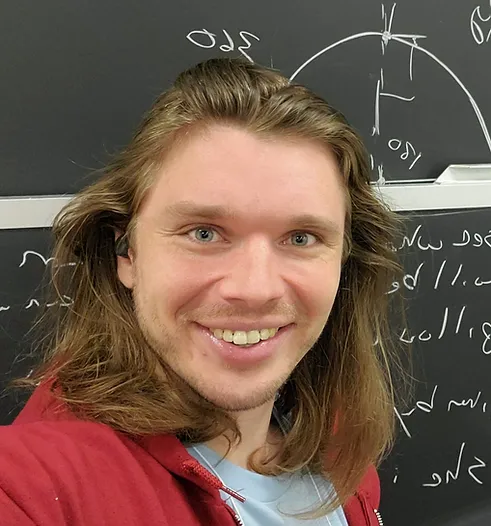Past Offerings
Competitive Math (MARP)
Saturdays
10:00 - 11:30 AM Eastern
March 8 - April 19
What is MARP? You’ve heard of LARP, live action role playing. Well, this is Math Action Role Playing, where competitive mathematics meets D&D. Your team of mathematical problem solvers is controlling a party of adventurers. The party must complete a quest, defeat a horrible monster, and save the kingdom.
Along the way, there are battles, traps, and deadly situations for the party. To attack enemies, avoid damage, and escape peril, the team must solve competition style math problems. There are magical items that might help in the quest, if only you can earn enough thorns to afford them.
Are you ready to join a team, test your mathematical skills, and guide your characters against a nearly immortal foe? If you are, then welcome to the MARP, where you become a force of math destruction!
STEM education is focused on building up technical skill in a field, but often neglects communication of these complex ideas. Communication quality is a key barrier to advancing in a technical career, from academic publications, to funding proposals, to summaries for executives. Understanding how to break down and explain subject matter expertise in an audience-targeted framework provides an enormous jumpstart to any STEM learner, both in academia and industry.
Practice analytical reading and writing of a variety of technical formats to build understanding of how the purpose and audience of a piece of writing impacts language, scope, and use of technical conventions. Get comfortable breaking down complex ideas to better build your own knowledge of a topic, and reading between the lines to uncover the social machinery behind science and engineering. Explore STEM topics you care about and get ready to share your own great ideas to stakeholders of all kinds.
Using an existing technical subject (either a STEM topic of interest, or a project that the student has completed for personal interest or another class), the student will develop a scientific report, executive summary, funding proposal, news article/blog, and final presentation with feedback and mentorship at every step of the way.
At one of the biggest software engineering classes at MIT, they started every lecture with the idea that well-written code should be safe from bugs, easy to understand, and ready for change. Let's write some code together and try to get one step closer to internalizing those principles! Currently working through python puzzles and starting to create games in react.js to be immortalized in edRev's virtual space!
Prerequisites: Experience in programing (preferably in Python!). The ability to solve a problem like https://adventofcode.com/2023/day/1
Electrochemistry: Building a Battery from Just About Anything
Have you ever asked yourself: What exactly are batteries, and how do they work? Could I make a battery? (yes); Can I really make a battery with a potato? (yes, but we will do better; potatoes aren’t special.)
That’s right! edRev founder Matt Benet will teach you enough electrochemistry for you to create your own battery! Each week, we'll dive into a different aspect of electrochemistry, exploring various materials and techniques to create batteries. From potatoes to tomatoes to saltwater to tofu, we’ll be trying many possible materials to discover what can be used to make a battery! We’ll test a myriad of household materials and different techniques to find what works and what doesn’t, and (more importantly), learn the why of it all!
Throughout the weeks, we’ll see how these examples are explained by the laws of electrochemistry and can help us understand why they behave the way they do. We’ll also explore exciting applications such as plating metal onto other metals, making the positive side of the battery become the negative side (switching the anode and cathode), and other fascinating experiments. If you’ve already taken AP Chemistry or an equivalent course, much of this content may be a review, but feel free to still join and apply the concepts you know to exciting new experiments! We’ll be experimenting with the principles behind electricity and batteries, and learning why your basic potato or lemon batteries barely scratch the surface!
By the end of this recurring class, you’ll understand how you can replace the potato with virtually anything when making a battery. Join us weekly for an electrifying journey into the world of electrochemistry!
This class is currently waiting for participant interest to start.
Topics include:
- U.S. Government organization: What do federal, state, and local governments do?
- Elections in the US: What even is the Electoral College? What about primaries? How can someone who wins most of the votes lose the presidential election?
- The theory behind elections: why do we do elections like we do in the US and what other options are there?
- Elections in practice: How do governments actually run elections?
This class is open to all who are interested in becoming a more responsible citizen, regardless of how much you may (or may not) know about politics. By the end of this class, you should be prepared to both understand whatever happens in November and participate in elections yourself! (Once you are old enough)

_edited.jpg)










